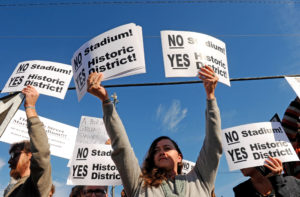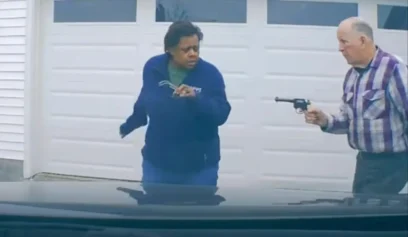
What’s more important – building for the future or respecting and commemorating the past?
That’s the question that the Richmond community and city officials must answer.
So far, the city council has been leaning more toward favoring the ballpark plans, as they approved a resolution on Monday that will give project officials the green light to continue negotiations with the city over the $200 million development.
The new building plans are for more than the 7,200-seat stadium, although that has certainly been the focal point.
A new hotel, over 700 apartments, a supermarket and a heritage site to commemorate the area’s slave trade history will also be built in efforts to bring new life to Richmond’s Shockoe Bottom district.
If the council approves the project relatively soon, the new stadium could be completed as early as 2016.
Martha Rollins, a businesswoman and social activist in the Richmond community, begged officials not to move forward with the construction plans.
“We have put Band-Aids on the wound of slavery all these years,” she said. “I ask you not to put in a ballpark… and end the chance to heal a national wound.”

“We believe the vision of revitalizing Richmond,” said Marlon Haskell, a Black clergyman who is president of the Baptist Ministers Conference of Richmond and Vicinity. “It is an opportunity … for the city to be transformed into an oasis of hope.”
One member of the city council, Charles R. Samuels of the 2nd District, just wants the citizens to know that officials are listening to their concerns and doing their best to find a good middle ground.
“I will continue to focus on ensuring the finances make sense, that our history is appropriately preserved and honored, and that the citizens of the 2nd District know I am listening to their opinions,” Samuels said.
As for the 4th District’s Kathy C. Graziano, she said new real estate is vital to the Richmond community and she’s in full support of the plan.
“At this point, I support the overall components of the plan in concept,” Graziano said. “Richmond, as all cities in Virginia, is landlocked. Meaning that the city does not have the ability to annex, and more of its land is already developed. It is crucial that it make the best use of all its real estate.”
Other officials also insisted that the plans would create new jobs in the community and provide new and exciting retail settings for citizens and tourists who would usually travel to other counties to shop.


